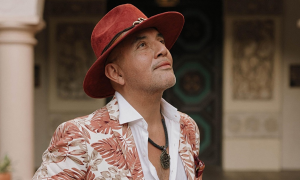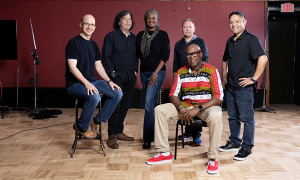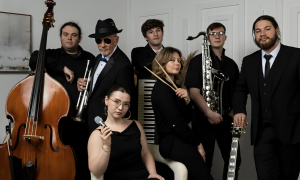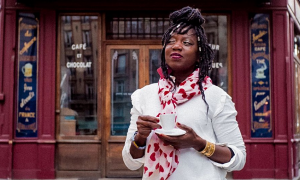Home » Jazz Articles » Take Five With... » Take Five with Pete Coco
Take Five with Pete Coco
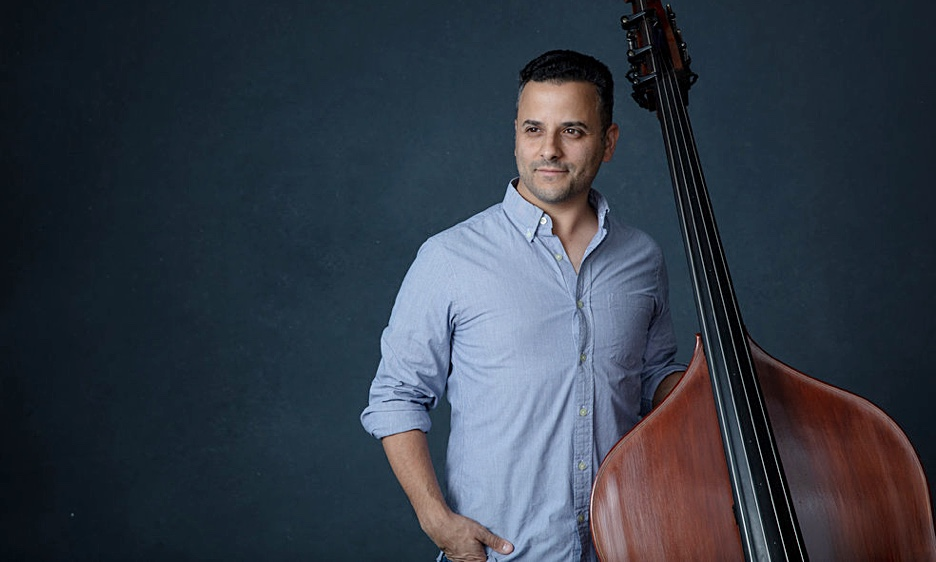
About Pete Coco
A mainstay on the New York jazz scene, bassist Pete Coco recently released his debut album as a leader, Lined with a Groove, featuring drummer
Matt Wilson
drumsb.1964

Sullivan Fortner
pianob.1986

Ron Carter
bassb.1937

Milt Hinton
bass, acoustic1910 - 2000

Ray Brown
bass, acoustic1926 - 2002

Charlie Haden
bass, acoustic1937 - 2014

Paul Chambers
bass, acoustic1935 - 1969
Pete has performed with many jazz greats including Matt Wilson,

Jane Monheit
vocalsb.1977

Bucky Pizzarelli
guitar1926 - 2020

Zach Brock
violinb.1974

Melissa Aldana
saxophone
Ken Peplowski
woodwindsb.1959

Harry Allen
saxophoneb.1966

Bruce Forman
guitarb.1956
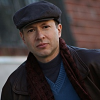
Joel Weiskopf
piano
Frank Vignola
guitarb.1965

Chuck Redd
vibraphone
Warren Vache
cornetb.1951
Pete holds a DMA in Classical Performance from Stony Brook University and a Masters in Jazz Studies from SUNY Purchase College. He is an adjunct professor at Hofstra University on Long Island, where he teaches bass lessons, lectures on American music, and directs the chamber music program. He is also director of the Music Academy of Garden City, a music school he founded in 2006, and an avid photographer who catalogs his fellow musicians both in the studio and live in concert.
Instruments:
Acoustic and electric bass. I am extremely blessed to play on a German bass circa 1850 which previously belonged to Milt Hinton. It is the "Chicago Bass" which was his first instrument and used extensively throughout his career. I also play on a Seth Kimmel bass which was built to my specifications in 2015.Teachers and/or influences?
My biggest influence is Ray Brown. When it comes to time, tone, and taste—I think he has had the greatest impact on me as a bassist and band leader. Ray's trio records are some of the best trio records, hands down. Each one is an education on how a bassist should run a band. Besides Ray, my current teacher Ron Carter has had the deepest effect on me. Studying with Ron has revolutionized my approach to music, and how I think about the role of the bass in my hands and in the band. Ron is also one of the most nurturing and kind souls I have encountered, and an example not only as a musician but as a person. Outside of the low end, Matt Wilson has been a mentor to me for many years, and is a constant encouragement to me. Living in New York, I have also had the great fortune to study with some of the best jazz and classical bassists in the world, including
Todd Coolman
bass
Doug Weiss
bass, acoustic
Rufus Reid
bass, acousticb.1944

Harvie S
bass, acousticb.1948
I knew I wanted to be a musician when...
...I heard Paul Chambers walking bass line on "If I Were A Bell!"Your sound and approach to music.
I have always regarded sound, meaning tone, as paramount. To paraphrase Ray Brown, our most important job as bassists is "not to play fast or play solos, but to get a good sound." Practically speaking, this means developing a warm, round tone with excellent intonation and sustain, and with a swinging beat. This is what the rest of the musicians want from the bassist, and I think it is even more crucial when working with a singer. My tone as the bassist should complement the sound of the human voice, not distract or take away from it.Your teaching approach
My teaching philosophy can be summed up in two words: Go practice! Although I am being facetious, there is no substitute for putting in the hours. When I was younger, I thought that people were either talented or not, and there was nothing one could do about it. It took me many years of struggling in the practice room to develop the foresight to realize that I had accomplished every musical task I set my mind to, as long as I was willing to put in the work. One day it dawned on me that I had become a pretty darn good bassist, and early on I didn't think I had the talent to excel in jazz or at the double bass. It is sad that our society places such an emphasis on talent over hard work -so I try to instill this in all my students from their first lesson on.Your dream band
I have a bunch of dream bands! I would love to play trio with
Benny Green
pianob.1963

Jeff Hamilton
drumsb.1953

Vanguard Jazz Orchestra
band / ensemble / orchestra
Christian McBride
bassb.1972

Cecile McLorin Salvant
vocalsb.1989
Road story: Your best or worst experience
I toured with a drummer who is a good friend but will remain nameless for the sake of this silly story. We always drove together, and he is one of the funniest guys I know, but, he loves heavy metal music. So, for hours on end, while driving through the endless flat plains of the USA, he would blast some of the heaviest bands you can imagine... whether it was day or night! You don't really know the road until you have experienced trying to sleep in the passenger seat of a car while the driver screams along to Slayer while simultaneously playing drums on the steering wheel at 3AM!Favorite venue
I had the opportunity to perform at the Teatro Olimpico in Vicenza, Italy, which was constructed in the 16th century. The theater has a Roman design, with majestic statues and columns in an elliptical pattern around the hall. The stage was designed with an optical illusion that simulates a long series of streets, so it seems as though you can walk right through the back of the stage. Any description fails to portray the grandeur of the theater and courtyard.Your favorite recording in your discography and why?
This is an easy one to answer since I recently released my debut album as a leader, Lined with a Groove. It was a labor of love into which I poured my heart and soul. I spent a great deal of time choosing tunes, writing arrangements, and trying to use all the lessons I learned from my mentors to create a cohesive statement. Since I decided to make a record of (mostly) tunes by bassists, this presented an additional challenge. I think it is more difficult for a bassist to release an album as a leader since people in and out of the jazz community do not necessarily regard bassists as frontmen in the same way we look at horn players or pianists. So, I although I wanted to pay tribute to my mentors and influences, I did not want a disc that was a niche album for bass players, nor did I want to record the same few (although great) tunes we bassists are known for playing, like "Tricotism"or "Visitation." Because of this, I purposely picked tunes I love that are lesser known, but demonstrate that bassists are some of the most prolific composers in jazz. I made sure to carefully arrange the tracks so that the album is a cohesive listening experience and complete statement, which I feel is becoming a lost art in our digital download world. I am thankful and pleased to say that I have received an overwhelmingly positive response to the record so far, and people have commented that they appreciate the tune selection and programming.What do you think is the most important thing you are contributing musically?
I am not sure that there is one "most important" contribution I am making to the music. I think that is for others to judge, as they see and hear me. I also feel that each time I pick up my bass, whether at a gig, recording session, or even in a lesson, it is an opportunity to contribute to the music. You never know who is listening, or what impact you will have on those around you. I think it was
Elvin Jones
drums1927 - 2004
Did you know...
I am an avid photographer, and when I am not playing my bass I am photographing other musicians either in the studio or on the bandstand. In a way I am trying to follow in Milt Hinton's footsteps. Besides being one of the baddest bassists in jazz, he took somewhere in the neighborhood of fifty-thousand photographs of other musicians! I have done quite a few promo shots for musician friends, and actually just did an album cover for my good friend (and monster tenor player)
Sam Dillon
saxophone, tenorThe first jazz album I bought was:

Bill Evans
piano1929 - 1980

Scott LaFaro
bass1936 - 1961
Music you are listening to now:
C®¶cile McLorin Savant's Dreams and Daggers has been at the top of my playlist for quite a long time. For me, her music represents the pinnacle of improvised jazz music. She has a healthy respect for and a deep knowledge of the art form, but she is constantly pushing it forward and making it new—making it her own.Desert Island picks:

Miles Davis
trumpet1926 - 1991

Sarah Vaughan
vocals1924 - 1990
How would you describe the state of jazz today?
I think that the easy answer is to say that jazz is in a state of decline. In the United States, it's hard to argue that art in general is not in a state of decline. But I also feel that there are many people who continue to push the music forward and preserve it for the next generation. The funny thing about jazz is that most people do in fact enjoy the music, even if they do not realize it.What are some of the essential requirements to keep jazz alive and growing?
Although we as jazz musicians take ourselves quite seriously as artists, I think that we need to have a balance between being artistic and being accessible as artists. I do not think that being artistic and entertaining are mutually exclusive. We must also actively engage the younger generation and cultivate their love for jazz. This is essential to keep the music alive.What is in the near future?
Right now I am promoting my record and planning the CD release party (venue and date TBD). I am also working on developing a jazz program on Long Island for junior high and high school kids, which is very exciting.What is your greatest fear when you perform?
I don't think I have a greatest fear, but I do struggle with self-confidence on the bandstand. This is especially true when playing with a big name, since we all want to be accepted and considered a valuable member of the jazz community. I think this is even tougher in New York, since there are so many amazing musicians, and they are everywhere!What song would you like played at your funeral?
I'm far too young to consider this question...What is your favorite song to whistle or sing in the shower?
I often sing the first movement of Bottesini's Concerto No. 2 in the shower—no kidding! I am a giant bass nerd!By Day:
I own and manage the Music Academy of Garden City, a music school located on Long Island. It's the best day job you could ask for!If I weren't a jazz musician, I would be a:
If I weren't a jazz musician, I would be a photojournalist. This way, I could still travel the world, and it would be much easier to carry a camera with me than a bass!If I could have dinner with anyone from history, who would it be and why?
Jesus. There are so many questions I have for him about life, people, truth. It would definitely be an insightful dinner!Tags
Take Five With...
Pete Coco
Michael Ricci
Matt Wilson
Sullivan Fortner
Ron Carter
Milt Hinton
Ray Brown
Charlie Haden
Paul Chambers
Jane Monheit
Bucky Pizzarelli
Zach Brock
Melissa Aldana
Ken Peplowski
Harry Allen
bruce forman
Joel Weiskopf
Frank Vignola
Chuck Redd
Warren Vache
Todd Coolman
Doug Weiss
Rufus Reid
Harvie S
Christian McBride
Cecile McLorin Salvant
Bill Evans
Scott LaFaro
Miles Davis
Sarah Vaughan
Lined with a Groove
Jeff Hamilton
Benny Green
Vanguard Jazz Orchestra
Elvin Jones
Sam Dillon
Star Trek
Comments
PREVIOUS / NEXT
Support All About Jazz
 All About Jazz has been a pillar of jazz since 1995, championing it as an art form and, more importantly, supporting the musicians who make it. Our enduring commitment has made "AAJ" one of the most culturally important websites of its kind, read by hundreds of thousands of fans, musicians and industry figures every month.
All About Jazz has been a pillar of jazz since 1995, championing it as an art form and, more importantly, supporting the musicians who make it. Our enduring commitment has made "AAJ" one of the most culturally important websites of its kind, read by hundreds of thousands of fans, musicians and industry figures every month.



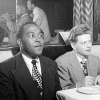




 Buy Now
Buy Now




